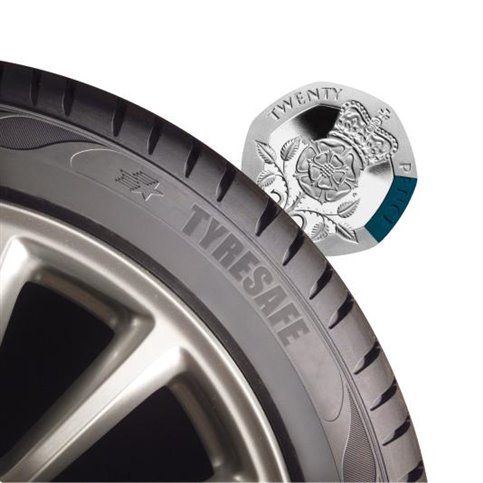The impact of tyre-related incidents on the UK economy has been highlighted by a new study from campaign group TyreSafe.
By compiling its own research into the problem, the non-profit organisation estimates that tyre-related incidents cost the economy over £83m annually, and have hit the UK economy to the tune of £416m in the past five reported years.
To combat the issue, TyreSafe have issued a fresh plea for motorists to pay attention to the condition of their tyres, ensuring they are correctly inflated and have sufficient tread depth.
Tyre defects are the single biggest contributory factor in accidents caused by vehicle failure over a five year reporting period in which 5,677 people were injured as a result, with 989 of those classed as serious or fatal. On average, 2.2 million cars fail an MoT test each year due to tyre defects, while there have been over 15,000 convictions for tyre-related vehicle defects over the past three years.
“What we’re urging motorists to do is carry out tyre safety checks on a monthly basis which will substantially reduce their risk of becoming involved in a tyre-related incident on the roads,” said TyreSafe chairman Stuart Jackson. “Vehicles have become progressively more reliable over the years so fewer of us need to carry out the weekly maintenance we once did on components like oil and water, but tyres are still in direct contact with the road and all the potential physical objects on them. Even new tyres lose pressure over time and can become damaged by potholes or kerbing.
TyreSafe recommends drivers check tyre pressure, condition and tread depth at least once a month and before long journeys. Air pressure affects handling and fuel consumption, and if not inflated to the manufacturers recommended level can lead to an increased risk of a sudden deflation. The correct pressures are often to be found in the door shut or filler cap, and in the owner’s manual.
The condition of the tyre should be checked for any suspicious lumps or bumps, while any objects like stones wedged in the tread should be removed.
The minimum legal tread depth is 1.6mm, the maximum penalty for driving with a tyre below that is three penalty points and a fine of up to £2500 for each tyre. Using a tyre depth gauge to check this is recommended, but if you don’t have one hen place a 20p coin into the main tread grooves at three points across the tyre and then repeat around its circumference - if the outer band of the 20p is visible, the tyres may be unsafe or illegal and need to be checked by a tyre professional.
Click here to sign up for our monthly newsletter
Popular news stories
 |
 |
 |
 |
|||
|
|
||||||








